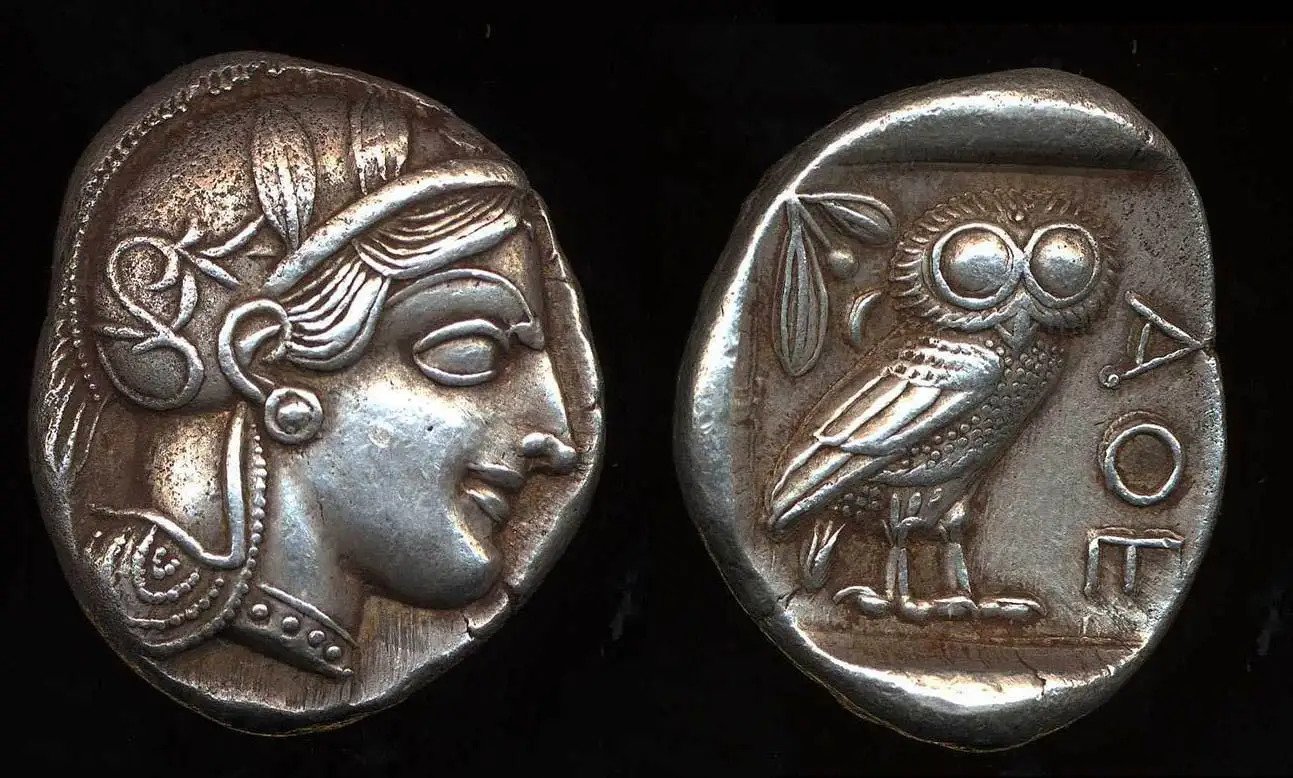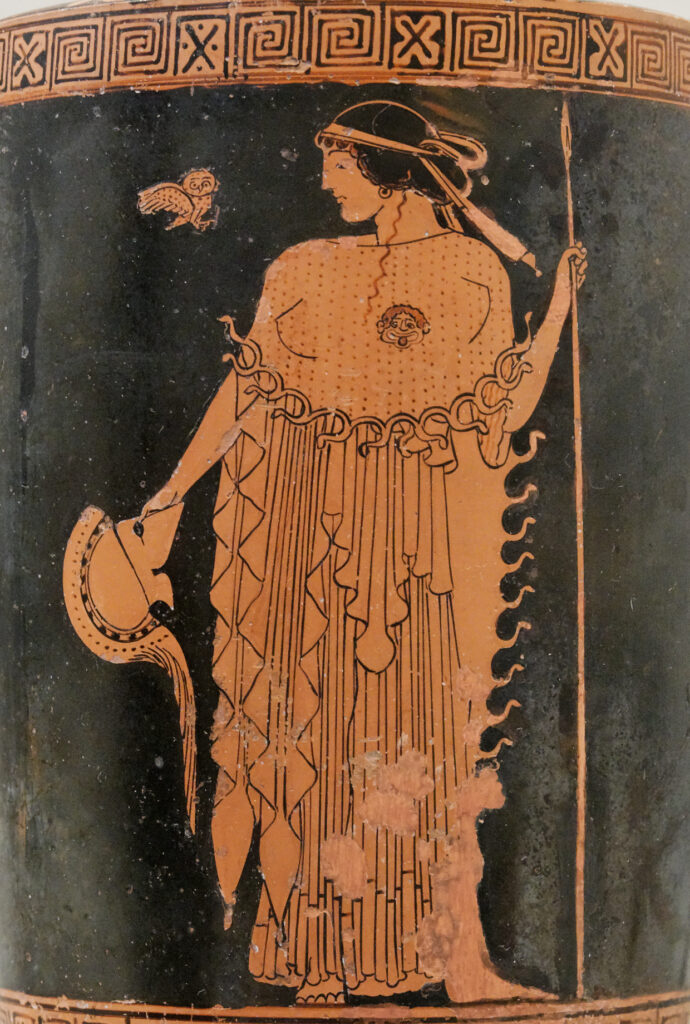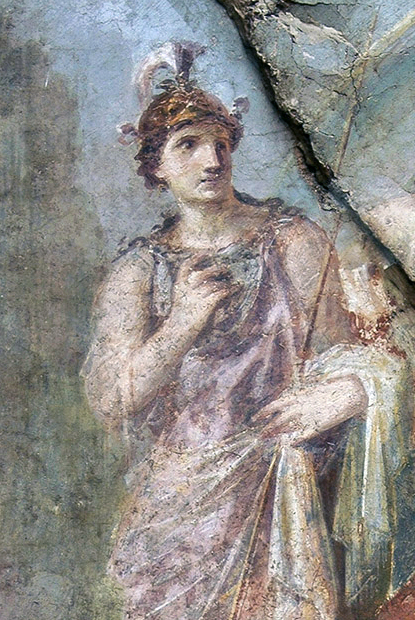by Ed Whelan, Contributing Writer, Classical Wisdom
Many animals were associated with Greek and Roman gods; they were believed to represent some aspect of the god or goddess. A good example of this is the Owl of the Greek goddess Athena. The Owl of Athena was one of the most important religious symbols in ancient Greece: it became a political, literary, and philosophical symbol which still resonates to this day.
Animals have long had symbolic associations for humans. In ancient Greece, the twelve Olympian gods all had animals that were deemed to be sacred to that deity. The attributes of the animals were believed to overlap or represent that of a god, and as a result, that animal was held to be sacred to that particular god. For example, Zeus was associated with eagles, which symbolized the strength and power of the leading Olympian deity.
The Owl of Athena
Athena was a virgin warrior goddess, and was widely worshipped in the Greek world. The goddess was the embodiment also of strategy, wisdom, warfare and technical skills. Athena played a major role in the works of Homer, and is often shown as the patron of heroes such as Odysseus.
Athena was long associated with the owl. Some believe that the association between Athena and the Owl in ancient Greece was inherited from the Indo-Europeans or Minoans. Another strand of thought is that the particular abilities of the owl made it a suitable symbol for the Goddess of wisdom, strategy and skills. Owls are intelligent birds and highly effective hunters: these qualities are those that represent many of the aspects of Athena.
The sight of an owl was believed to be a sign of favor from Athena. At the naval Battle of Salamis, the appearance of some owls was seen as a blessing from the goddess of warfare, wisdom and strategy. Because of the association with the daughter of Zeus, owls had a very high status in Greece. There were many depictions of Athena with her companion animal, the owl. According to myth, the owl sat on the blind side of the Goddess and allowed her to see everything and to comprehend the whole truth.
Athena’s Owl and Athens
Interestingly, there was a large population of owls in the vicinity of Athens. Athena was the patron of the city, and she attained this honor in a contest with the sea-god Poseidon. Some believe that the name of the greatest Greek city came from the goddess. While Athena was a Panhellenic deity, she was the object of special reverence in Athens. The owl became a symbol of the city. It represented not only Athens’ patron goddess but also the qualities that they admired, including warcraft, reason, strategy and practical skills. Many Athenian coins have the symbol of Athena. There is one source that claims that owls were kept at the Temple dedicated to Athena in the city.
The Owl of Minerva
The Romans were deeply influenced by Greek religion and myth. One of Rome’s most important deities was Minerva, the old Latin Goddess of reason, wisdom, strategy, poetry, handicrafts, and commerce, became associated with Athena. The Romans adopted the Owl of Athena to represent the powers and characteristics of Minerva, who was less bellicose but was regarded as being as wise as the Hellenic goddess. Like her Greek counterpart, the Roman deity came to be represented by the symbol of the nocturnal raptor in art and coins.
The symbolism of the Owl of Athena
Philosophers across the ages have adopted the symbolism of the owl of Athena. Aristotle used the symbol of the owl to denote the wise. The 19th German idealist philosopher Hegel famously wrote that the ‘”the owl of Minerva spreads its wings only with the falling of the dusk”. This refers to the fact that people only become wise after the event has passed.
The owl is still a symbol of wisdom to this day. This is in part due to the fact that the bird was sacred to the Greek goddess of wisdom. The owl of Athena or Minerva became associated with secret knowledge in the early modern period and was the symbol of the notorious secret society, the Illuminati.
Conclusion
Many gods and goddess had sacred animals and they were deemed to represent some characteristic of the goddesses. The owl was thought to represent the wisdom and foresight of Athena, the virgin goddess in the Greek Pantheon. The owl became associated with Athens and later with the Roman goddess Minerva. The Owl of Athena resulted in, the bird becoming a symbol of wisdom. Today being as ‘wise as an owl’ is a popular expression.
References
Graves, Robert (2000). Greek Myths. London: Pelican.












No comments yet. You should be kind and add one!
Our apologies, you must be logged in to post a comment.